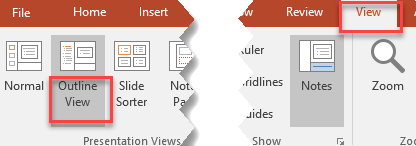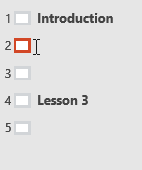Update Your Panopto Recorder!
Are you planning to record your lectures with Panopto? To ensure you are able to record properly, be sure to update your Panopto Recorder. When you open your Panopto Recorder you will be prompted to update, be sure to accept the update and ensure that the server name is listed as “wichita.hosted.panopto.com” when indicated during setting. If you notice that the server name is different than the correct “wichita.hosted.panopto.com”, change it to the correct server name and use the option to log in with Blackboard.
Are the Ally "Dials" Getting you Down?
If you work with Blackboard, you've surely noticed the little red/orange/green dials next to some of your content. These clickable dials are indications of how accessible your uploaded information is. In general, red is bad and green is good, although there can be exceptions. For example, if you upload your content in more than one format, you might have one format that is optimized for one kind of accessibility while the other format optimizes for something else. That is fine so long as everyone is covered. If you are unsure whether you have an accessibility problem in your course, or if you are worried about what the Ally dials are telling you, read more about Ally here, or come by the IDA labs and we can help you.
Two Important Accessibility Decisions
Two important accessibility decisions, both coming out of the Ninth Circuit, are helping to clarify accessibility law both for higher ed and for the nation at large. The first is a decision in a case involving the Los Angeles Community College District and two students who are blind. In this case, the judge ruled LACCD violated Title II of the Americans with Disabilities Act and Section 504 of the Rehabilitation Act. LACCD has been ordered to address problems with educational resources, their website, and certain campus technologies. LACCD was also ordered to pay the plaintiffs' legal fees, which were in excess of two million dollars.
The second decision came just as the Supreme Court started its new session this fall. On Monday, October 7, the Court refused to take up Domino's Pizza v Robles, a case challenging whether Title III of the ADA requires website accessibility. Because the Supreme Court refused to take up the case, the lower court decision in favor of Robles' claim stands, although it's possible the Supreme Court will take the case up at a later date. This decision possibly paves the way for retailers to be sued if their websites are inaccessible.
Hybrid Delivery May Improve Student Outcomes
There is a general consensus in educational research that student outcome attainment are similar or the same between face-to-face and online classes. But what about hybrid classes? Emerging research suggests that students may actually preform better with a hybrid delivery. On the WSU campus, hybrid classes can range from traditional face-to-face classes that have been "flipped" but still have the same amount of seat time to courses with the HYB designation (less seat time) or HYO designation (very little seat time). If you are interested in dipping a toe into hybrid classes, flipping is a good place to start. IDA offers training in flipping, and we would be glad to come to your department meeting or other venue to train on it. If you prefer, check out the "Flip That Class!" slides from this year's Academic Resources Conference.
Copy Your Course Content to Next Semester
Do you worry building your course or adding contents in it every semester? You shouldn't have to worry about it anymore. You can copy your contents from previous semester and make your updates from there. You will find it easier to make some changes than to start from scratch and add each content one by one. It is a few steps on blackboard, and there are some tips that you need to remember in the copy process.
If you have any question about Blackboard and its functionality, contact us at ida@wichita.edu, or visit us at our Blackboard and Accessibility Lab every Tuesday and Wednesday 1-3pm at Ablah Library's C-Space.
Blackboard Midterms: How to Avoid Problems
Midterm time is upon us and with it often comes a flood of emails from concerned instructors and students experiencing problems with their Blackboard exams. Many of these problems stem from common mistakes in the exam settings that we see made time and again. This semester, avoid these errors and the problems they come with and check out IDA’s Common Blackboard Exam Problems and How to Avoid Them training article.
Blackboard Is Not Your Video Host
Video content can be a great instructional material for your course, but it can also create a number of problems if you do not share your videos correctly. If you have a raw video file, such as an MP4, you need to upload the video to a video hosting platform—i.e. YouTube or Panopto—before you share it in your course. Blackboard is not equipped to house raw video files, and demanding that it do so will only lead to complications within your course. These raw files, once uploaded, are nearly impossible to remove entirely from the system and because of this will often cause your course to run slowly, have difficulties being moved to the next semester, and/or be very difficult for students to actually view. The best solution is to upload your video file to YouTube with the “unlisted” setting or upload the video into Panopto, then share the video link to your course.
Get Chalk and Markers in IDA's Labs
Do you love chalk, but hate the mess? Then stop by IDA’s Blackboard and Accessibility Lab (every Tuesday and Wednesday 1-3pm, C-space of Ablah Library) for the solution to your woes. We have high-contrast chalk that is smooth as butter, shiny, clean, sturdy, and covered with a wax sheath to keep the dust off your hands and clothes. Yes, it is the one, the only Hagoromo Fulltouch chalk. See for yourself why the world’s mathematicians hoard it and call it “one of the best-kept secrets in the math world.”
Before you say you don’t have a chalkboard, we do realize chalkboards are becoming
increasingly rare on campus, and most of you are using dry erase markers and boards.
Never fear, we have new, bold high-contrast dry erase markers available too! When
your students start asking if you are using disappearing ink in your markers, it’s
time to visit the IDA lab and get a new one.
From MOOCs to Subscription Service?
Coursera, made famous by its foray into Massive Open Online courses (MOOCs) is adding a new service: institutional subscriptions so colleges and universities can have access to Coursera's full catalog of courses. Interested in knowing more? Check out this Inside HigherEd article on Coursera's new plans.
Faculty Development Supports You!
Did you know that Wichita State's Faculty Development Office aims to support all faculty in their roles as teachers, researchers, and campus citizens? This effort is led by Dr. Gery Markova, Director of Faculty Advancement, along with the Associate VP for Academic Affairs Dr. Linnea Glenmaye and multiple units across campus. Keep up with them on the Faculty Development webpages[BROKEN LINK] as well as here each month.
Upcoming Training Opportunities with Dr. Jennifer Stone
Dr. Jennifer Stone, Associate Professor in the School of Education, College of Applied Studies will lead two workshops on Inclusive Teaching in the next few weeks:
Inclusive teaching: Accommodating for learning disabilities
In this short workshop, faculty will identify hidden disabilities encountered in the classroom and how they can impact the student experience. Participants will also discuss simple classroom accommodations to increase success of students with learning disabilities. October 17th at 1.30 p.m., Clinton Hall 326, light refreshments provided.
Inclusive teaching: Deconstructing barriers to learning
In this short workshop, faculty will learn how to evaluate their own teaching for barriers and bridges they already create in the classroom. We will look at teaching strategies, coursework, and classroom culture and discuss how to tear down barriers to learning. Faculty are welcome to bring their own syllabus, have an example of a typical assignment or a lesson plan/lecture to discuss. Nov. 1st at 11 a.m., Clinton Hall 326, light refreshments provided.
Information Literacy in Higher Education
What does information literacy mean to you? To library faculty, it evokes one of our guiding documents: the Association of College and Research Libraries' (ACRL) Framework for Information Literacy for Higher Education. This document helps us focus our information literacy work around six core concepts or "frames". If you would like to learn more about the Framework, see the executive summary prepared by ACRL. Contact your subject librarian to learn more about how we can help you incorporate information literacy into your courses.
Save Time With PPT Shows
Ali Levine, ITS Applications Training Lead, produces a monthly blog called Office Bytes you will want to checkout. Each month, Ali shares tips and tricks to make using Excel, PowerPoint, and Word a little easier and more satisfying. For example, did you know you can create custom slideshows with PowerPoint? Doing so will allow you to use a single set of slides for different presentations. No need to create multiple slide decks for similar presentations when one will serve your purposes just as well!
Title That Slide!
You are probably already thinking you can skip reading any further because you always
make sure your slides have titles. However, just because your “title” looks like a
title, feels like a title, and even smells like a title (if titles had smell), it
doesn’t mean it is a title. It could just be fancy text masquerading as a title. So,
what’s the difference, and why does it matter since they look the same? The difference
lies in the formatting or the unseen code attached to the title. For anyone using
a slide visually, there is no difference between text that looks like a title and
text formatted as a title. However, it does make a difference to anyone using assistive
technology such as a screen reader. Without titles, your slides may become confusing
and almost impossible to navigate. To discover if your titles are formatted as such,
simply run the accessibility checker in PowerPoint.
Not surprisingly, PowerPoint slides lacking formatted titles is a common issue brought
to our Blackboard and Accessibility Labs. Formatted titles can be added by going to
the View Tab and selecting Outline View. 
If a slide has a formatted title, it will appear to the right of the slide in the
Outline View. In the example below, slides 1 and 4 have formatted titles, while 2,
3, and 5 do not. To add formatted titles to slides, click to the right of the slide
and type in the title.
Before we say farewell to the topic of PowerPoint titles, it is important to note
that each slide title should be unique. If you absolutely must give multiple slides
the same title, add consecutive numbers or letters to differentiate between them and
indicate order for anyone using assistive technology.
Friendly Audits for 2019-2020 are Underway
The “friendly audit” is a process in which each of WSU’s online courses is run through a quick review that looks specifically for accessibility concerns, but also includes some content and organization review as well. Courses are reviewed by semester and include classes that are fully online, as well as hybrid online and badge courses. During this review, the auditor looks for any significant accessibility issues, which would include videos without closed captions, images without alternative description, and documents that cannot be translated by a screen reader, to name just a few. Additionally, it is important to note that while content and organization is reviewed, the judgement is not placed on the quality of the content, but on whether instructional content is provided or not by the instructor, and if it is displayed logically for learners. Ultimately, the results of the friendly audit process will be gathered and each online instructor will receive a letter that highlights areas for improvement and directs them toward training on how to implement those changes.
Share Your Conference News With WSU!
Have you gone to a conference lately and have something related to teaching to share? Whether you are bringing back some new teaching advice, or you presented on a teaching-related topic, we want to hear about it. We will also be posting links to IDA's conference presentations here when they are relevant.
You'll notice that IDA's conference presentations tend to be accompanied by a website with the slides and resources. We create these pages to help ensure our conference presentations are accessible to all possible attendees. If you are interested in creating accessible conference presentations, the Kansas Accessibility Resources Network has a free course in accessible conference presentations to work through.
This month we have two conference presentations to share:
- "Comprehensive Accessibility Training Means Training Everyone, Including Students," from this summer's AHEAD conference in Boston.
- "Universal Design and Universal Design for Learning, Train the Trainers," from the Michael Tilford conference in Lawrence.














